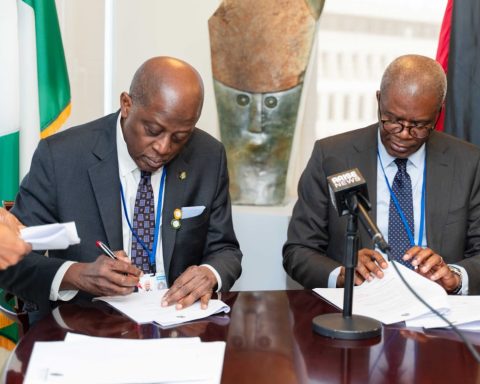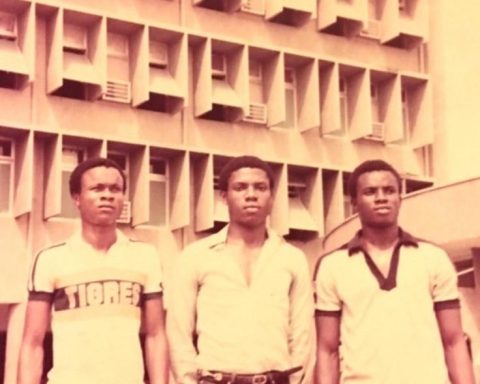On 27 July, President Bola Tinubu captured national attention by bestowing prestigious honours on 200 outstanding former members of the National Youth Service Corps who served between 2020 and 2023. These honours included automatic employment in the federal civil service, cash rewards of N250,000 each, and fully funded postgraduate scholarships. The ceremony, held at the State House Conference Centre in Abuja, was a moment of national pride, celebrating excellence, determination, and sacrifice among Nigerian youth.
The symbolic power of the gesture was clear. The country paused to applaud young achievers, with the message that hard work and service are valued and rewarded. Yet, beyond the cheers and speeches, a deeper question must be asked. In a functional and prosperous economy, should the highest aspiration of a young Nigerian graduate be a rare, government-conferred job award?
While the moment was uplifting, it invites a reflection on how Nigeria supports its youth in a broader sense. Are selective rewards for a few high performers enough, or should they reflect a more comprehensive national commitment to the aspirations and potential of all young Nigerians?
Many citizens remain sceptical about the government’s true motivations. In more vibrant economies, employers compete to attract graduates. In Nigeria, graduates compete endlessly for scarce openings. In this context, NYSC awards, though inspiring, risk becoming spectacles that conceal a broken system.
A Brief Look at the Origins
The youth service scheme was established in May 1973 by General Yakubu Gowon as one of the post-civil war initiatives aimed at fostering national unity and rebuilding fractured relationships that stemmed largely from the Nigerian Civil War of 1967-1970. It was designed to mobilise young graduates to serve outside their home regions, particularly in rural and underserved areas, to promote patriotism, reconciliation, and national development.
But for many corps members today, the service year feels less like a platform for nation-building and more like a frustrating holding pattern. For years, the monthly stipend was a meagre N33,000, which proved grossly inadequate in the face of rising inflation. The hardship caught national attention in March 2025 when TikTok influencer Ushie Uguamaye, also known as Raye, posted a viral video about the suffering endured by corps members. Following public outcry, the NYSC Director-General, Olakunle Oluseye, announced the implementation of the N77,000 allowance.
Many had hoped the increment would ease pressure on young Nigerians, but frustrations have persisted. Delays in mobilisation and postings continue, with graduates often told to “wait till Batch C” before they can register.
These delays are particularly troubling given that many employers insist on NYSC certificates before considering applicants for jobs. Yet, the few available positions often require experience, leaving fresh graduates stranded. This leaves many idle at home, and raises a worrying question. What happens if some, out of desperation, begin to engage in crime just to survive?
Speculations abound. Is the NYSC deliberately slowing the process to manage the financial burden of the increased allowance? Or are these delays symptomatic of broader mismanagement and corruption? Either way, it raises uncomfortable questions when the government can afford luxury spending, yet young graduates are left in limbo.
In spite of these systemic challenges, corps members continue to play vital roles, teaching in poorly resourced schools, including in insecure areas like Borno, supporting rural clinics, and contributing to local development, while their efforts often go unrecognised, overshadowed by such of the particular high-profile award ceremonies with a symbolic recognition for a few, while the vast majority remain stranded, some yet to serve, others unemployed after service. A handful of jobs should not be the national prize in a country where millions of young people are willing and able to work.
Since Mr. Tinubu assumed office in 2023, efforts to tackle youth unemployment have remained largely ineffective. The labour market continues to fall short of absorbing the annual wave of graduates.
According to data from Afrobarometer and the National Bureau of Statistics (NBS), in 2020, youth unemployment in Nigeria was alarmingly high, 53.4% among those aged 15 to 24, and 37.2 % among those aged 25 to 34.
But according to more recent NBS figures, unemployment reportedly dropped to 8.4% by the first quarter of 2024, and further to 6.5% by mid-2024, following a revised methodology. However, many young people and analysts dispute these numbers, arguing that they do not reflect the lived reality. There is a growing suspicion that statistics are being massaged to give the illusion of progress.
Yet, genuine youth empowerment requires more than ceremonial awards. It demands policy interventions and investments that address joblessness and economic stagnation. One-off events cannot substitute for long-term solutions.
The government must shift its focus to implementing strategies that unlock opportunities across key sectors such as agriculture, healthcare, education, and technology, which will, in turn, absorb millions of young Nigerians into meaningful and productive employment. Let the next big presidential announcement be a plan to create 2 million jobs, real opportunities in manufacturing, agritech, public research, and digital entrepreneurship.
Delivering Sustainable Solutions
Therefore, to truly honour the spirit of youth service, the government must go beyond gestures. It should strengthen post-service support through job placement initiatives, robust career services, and public-private partnerships that assist corps members in transitioning into the workforce.
Establishing innovation hubs in rural postings would allow corps members to develop solutions relevant to their host communities, whether in farming, healthcare, education, or technology. These initiatives would not only empower the youth but also transform underserved regions into centres of innovation and development.
Investment in rural infrastructure, electricity, clean water, internet, and transport is essential to make service postings sustainable and impactful, not a situation where the allowance provided cannot be enough for transport. Additionally, transparent and merit-based reward systems should be practised, ensuring recognition is based on performance rather than political considerations.
If the government is truly committed to recognising the contributions of Nigerian youth, such gestures must be regular and institutionalised, not tied to election cycles, because a national award scheme that celebrates each NYSC batch annually would provide consistent motivation and help members reflect a deeper commitment to meritocracy.
If recognition can become a national value, not an occasional spectacle. Celebrating excellence, when paired with meaningful opportunity, can transform the NYSC experience from a mere waiting room into a launchpad for national development.
Only then will national applause ring out not just for handshakes at the Villa and a campaign strategy, but for structural reforms that unlock the true potential of our youth.
Dr Mbamalu, a Jefferson Journalism Fellow, member of the Nigerian Guild of Editors, and media consultant, is the publisher of Prime Business Africa
Join our WhatsApp Channel







